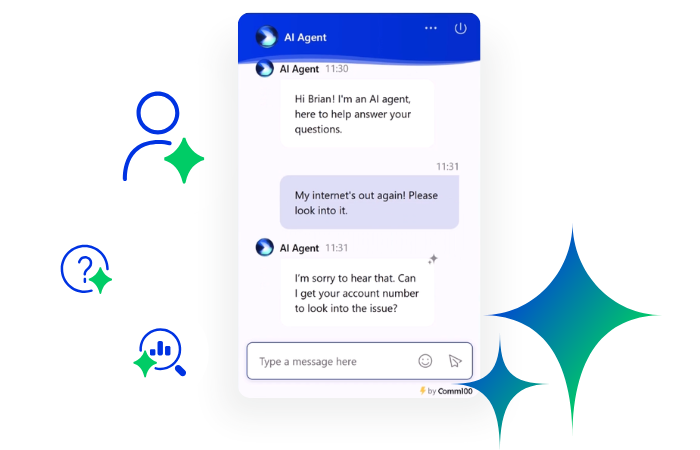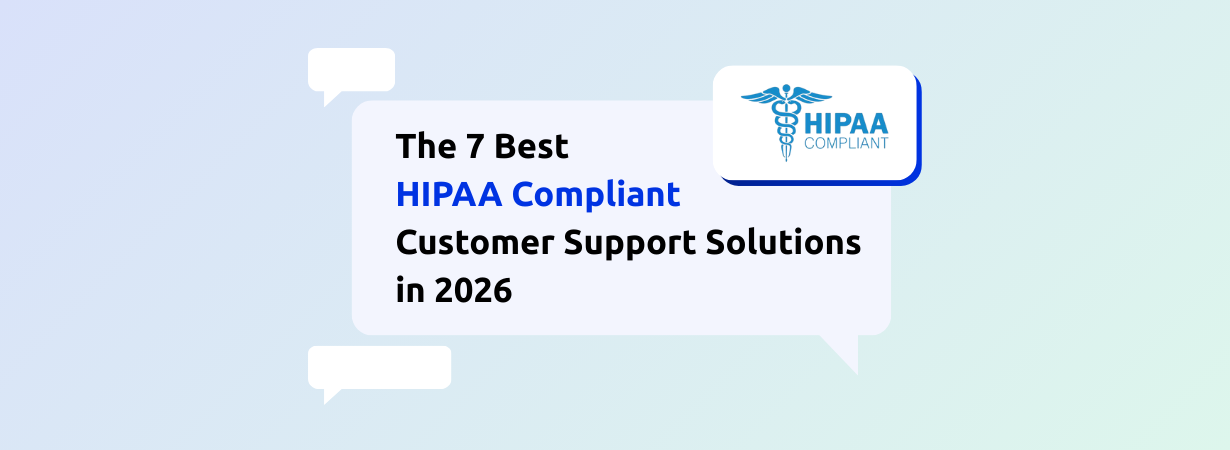Customer service forms the backbone of any successful business. Users are more likely to remember, interact and refer to your brand if they connect with your customer service.
While 80% of companies believe that they deliver an extraordinary experience for their customers, only 8% of their customers resonate with this claim. This means that while businesses know the importance of providing stellar customer services, few understand what it entails, and they still have a lot of work to do.
But why personalized customer service? The answer is simple – better customer relations and outreach.
What is personalized customer service?
Here are easy steps your business can use to make the transition easier for your customers:
The definition of personalized customer service varies from company to company. For some, it could mean a specially priced offer for customers. To others, personalization means being addressed by name in any and all communication. Yet, these examples could be far from what some customers are looking for, and it’s crucial to know what it means.
This article will cover the following:
- Digital Transformation in Customer Service
- Significance of Omnichannel Customer Service
- Importance of Personalization Strategy and Ideas
- Using Software for Customized Customer Service
Digital Transformation in Customer Service
Customer service is ever-evolving, and as many know, call communication is dead (or dying as we speak). The reality is that the emerging generation won’t pick the phone to connect with you. Instead, they prefer reaching out to a live person via chat, and with that, they expect prompt answers. However, only a few of them will sit around waiting for an email response for days on end.
To help your business deliver genuinely personalized customer service, you must transform digitally to embrace modern forms of communication. Customers now want to engage with brands through social media, WhatsApp, and SMS. That means it’s crucial to ensure that you provide seamless transitions from one of these channels to another for consistency in communication. This also allows your customers to contact your business in the way they prefer the most.
Learn more: What is Omnichannel Customer Service Strategy?
While communicating with your customers, keep in mind that they like personalized messages, interactions, and experiences. If you’re not sure where to start, you can use past customer data to access information about your customers to help your brand personalize communications. For example, you can tailor product recommendations based on your customers’ purchase and search history, just like Amazon does.
Meet Your Customers Where They Are
Not all customers prefer the same communication channel when interacting with your company. This is why you should consider devising an omnichannel experience for your customers –allowing them to find your brand on the platforms they care about the most.
For example, if your customer is an 80-year-old who prefers the phone, you can’t scrape them off your customer list because they won’t use the live chat function. Instead, you will put more effort into the phone to provide them with a more personalized customer experience. If your audience is younger, they might prefer to use social media or live chat. That’s why it’s important to be where your customers are.
How would you choose which communication channels you should use when communicating with your customers? The best way to find out would be to ask them what they prefer, through your conversations or even a quick survey. This will help your company provide a more meaningful experience.
Your Customers Want Answers
In reality, your customers want answers. They expect a quick resolution, and they want you to respond to their issues in the shortest time possible. Luckily, you can now leverage the power of artificial intelligence and real-time data for a hyper-personalized approach. Ultimately, you will be able to deliver relevant, personalized service to your customers.
Consider using hyper-personalization strategies to help you meet your customers where they are. Excellent ideas to get you started with personalized customer service include:
- Using real-time messaging via live chat to offer prompt answers and deliver a personalized touch to customer service.
- Incorporating video chat to deliver personalized conversations to your customers. This will even help you solve more complex issues and allow an in-person experience.
- Encouraging your customer service agents to use screen sharing for efficient collaboration and a better understanding of a customer’s website journey
- Integrating AI-enabled chatbot for automated responses and 24/7 support.
The Importance of Customer Service Personalization
If you are still asking – “why personalization?” The importance of personalization in customer service can be summed up in the research findings that reveal that more than 80% of customers say that a brand wins their trust when it treats them like a person. Personalization helps your business on many levels:
- It improves the customer experience and retention: When customers feel satisfied with your services, they are less likely to have complaints and will stick with you longer.
- It enhances lead generation: You can gain a competitive edge over your competitors by personalizing your customer service.
- Increases your conversion rates: Personalizing support and offers gives you the power to win over the undecided customers who are still gauging your business against your competitors.
It’s important to keep your personalization strategy real and avoid going overboard with your messages to achieve these benefits. Don’t try it all at once –what works for someone else may not work best for you. It’s best to have a targeted strategy to provide the best customer service. Remember, you can’t provide meaningful customer experiences and engagement without personalized and genuine messages.
Leverage Software the Right Way
Make sure that if you’re using software for customer service, you’re doing it the right way. For example, if you have a chatbot, ensure you have humans keeping tabs. This makes it easy for them to swoop in and carry on with the conversation when needed.
You should also equip your customer service team with the right tools to help them respond to your customers’ needs fast. Using artificial intelligence and virtual reality can help you fill the gaps between online experiences and the real world.
While no technology can replace talking to agents and the physical testing of products, you can still promote customer experience by implementing AI and VR into your customer service platforms. In fact, research shows that approximately 61% of consumers prefer retailers that offer AI experiences.
Creating an omnichannel experience for your customers can be a challenging task for your business. Fortunately, you don’t have to do it all by yourself. Experts at Comm100 can help you come up with technology solutions for personalized customer service. Contact us today to schedule a consultation and learn how to leverage technology for a personalized customer experience.
Experts at Comm100 can help you come up with technology solutions for personalized customer service. Contact us today to schedule a consultation and learn how to leverage technology for a personalized customer experience.






